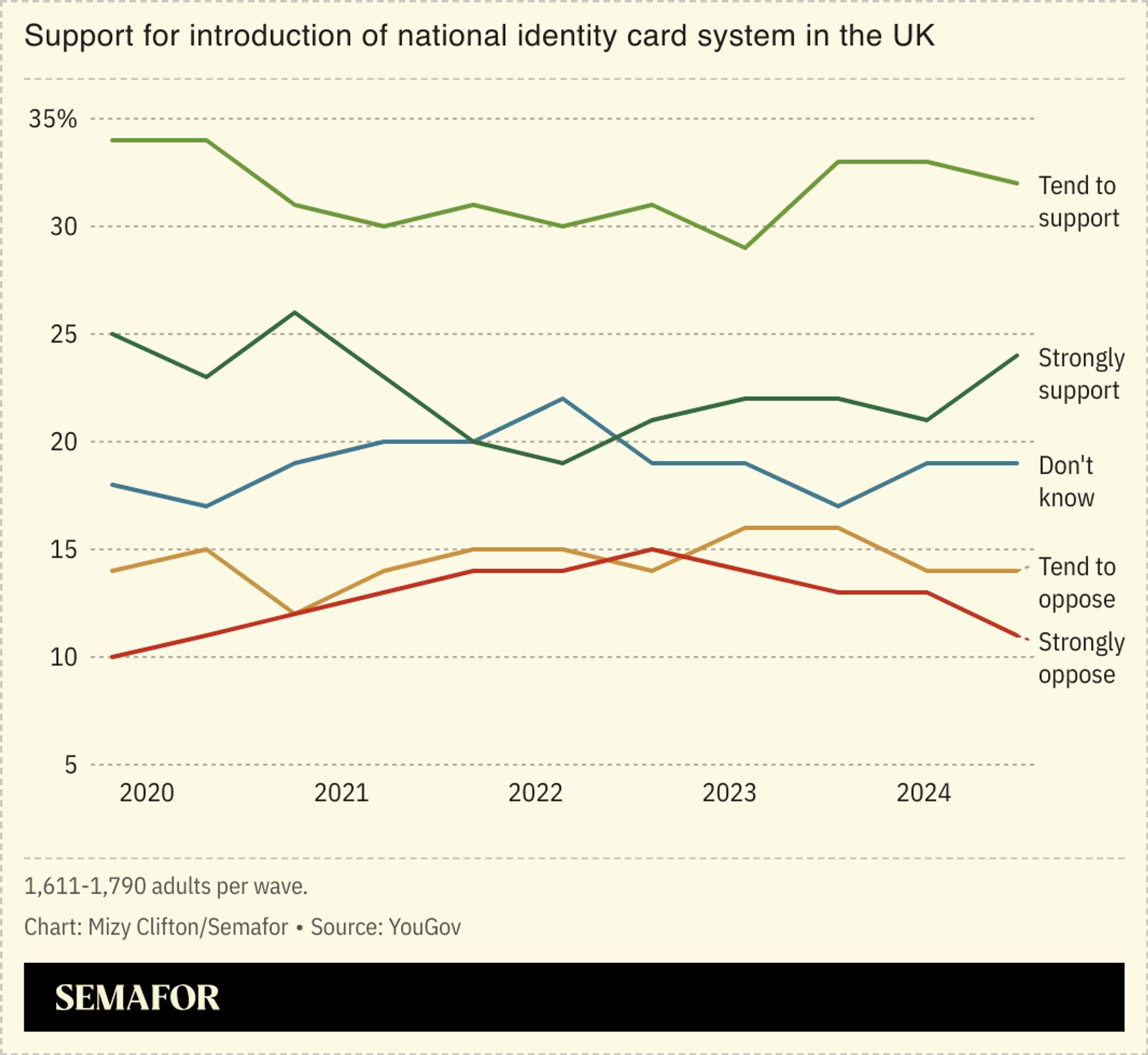The News
A long-running debate over digital identity cards has reignited in the UK. Writing in a Daily Mail opinion piece published Dec. 11, former Prime Minister Tony Blair argued the technology is “essential” to tackling various hot-button issues on the new Labour government’s agenda, including benefit fraud, healthcare costs, and migration.
“Our present system isn’t working. This is a time for shaking up. For once-in-a-generation disruption. Digital ID is a good place to start,” Blair argued.
The UK is somewhat of an outlier on digital ID, according to Sky News: Only five other members of the Organization for Economic Cooperation and Development group of 37 democratically led countries — namely, Australia, Canada, Ireland, New Zealand, and the US — are yet to implement such a scheme.

SIGNALS
Digital ID could streamline public services
The UK has a “dismal record” when it comes to digital innovation, the Financial Times wrote in an editorial. But a UK digital ID could “supercharge” efforts to modernize public services, for example, by integrating personal health records so they are shared across providers, or by streamlining welfare payments, the outlet argued. Estonia, which brought in e-IDs for “everything from ordering prescriptions to voting,” the FT wrote, estimates the system saves the state 2% of GDP every year. “If Britain truly wants a modern state, it is an idea whose moment has come,” the outlet concluded.
More reliable identity checks could have effect on immigration
A UK-wide digital ID could deter illegal immigration by removing the “perverse incentive” that the UK’s lack of a comprehensive e-ID enables migrants to simply disappear into the so-called “grey economy,” The Times of London argued in an editorial. Then again, the UK already has various checks and balances designed to curb illegal migration, several migration experts told Semafor. Instead, digital ID could raise concerns over privacy and surveillance, which could discourage some migrants from pursuing legal routes to settle in the UK, a researcher at the Institute for Public Policy Research, a progressive think tank, said. One clear benefit would be the ease of gathering data on migration, as the current system leaves agencies trying to link up bits and pieces of information from disparate sources, a researcher at the Migration Observatory, an Oxford University analyst group, said.

